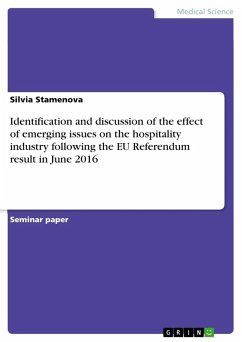
An Ethico-Political Evaluation of the Necessity for a Referendum over any Future German Olympic Bid

PAYBACK Punkte
29 °P sammeln!
The implementation of referenda in advance to an Olympic bid is common in Western democratic countries. In many cases, they have produced negative results, ending the aspiration of Olympic Games on the spot. Germany is no exception to this case. While recent research has predominantly investigated the possible reasons why past referenda have failed, the aim of this book is to evaluate the necessity of a referendum as a tool in the first place. Since a referendum is no formal requirement by the International Olympic Committee (IOC), its application is examined on an ethico-political level. Ther...
The implementation of referenda in advance to an Olympic bid is common in Western democratic countries. In many cases, they have produced negative results, ending the aspiration of Olympic Games on the spot. Germany is no exception to this case. While recent research has predominantly investigated the possible reasons why past referenda have failed, the aim of this book is to evaluate the necessity of a referendum as a tool in the first place. Since a referendum is no formal requirement by the International Olympic Committee (IOC), its application is examined on an ethico-political level. Therefore, the advantages and disadvantages of a referendum in terms of any future German Olympic bid are analysed and discussed - from a political, civil and German Olympic Sports Confederation (DOSB) perspective. Based on the findings, this work rejects the necessity of a referendum before a German Olympic bid, as the alignment of ethico-political considerations analysed does not seem to be sufficiently pronounced in the de jure and de facto implementation of this tool.














